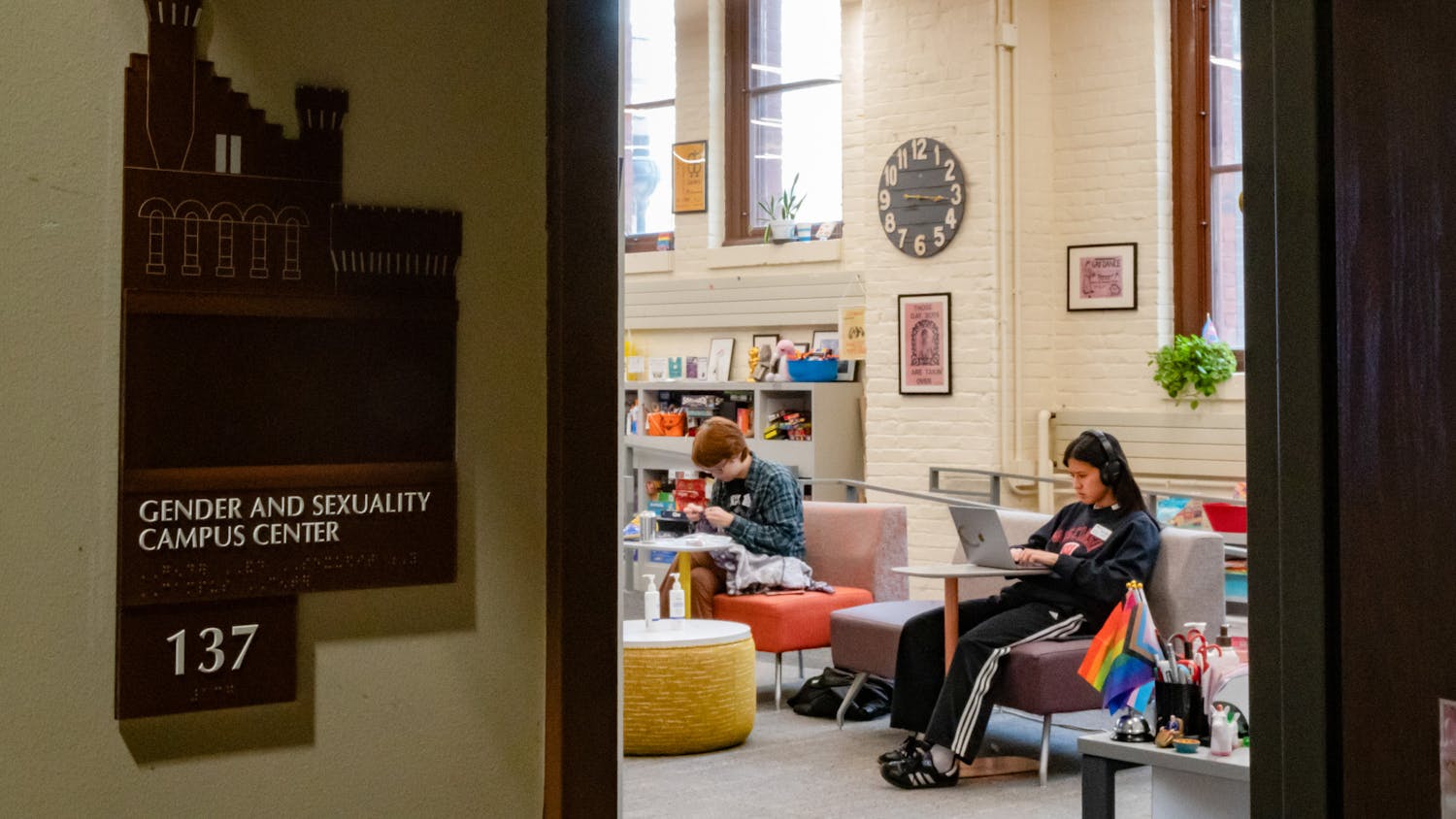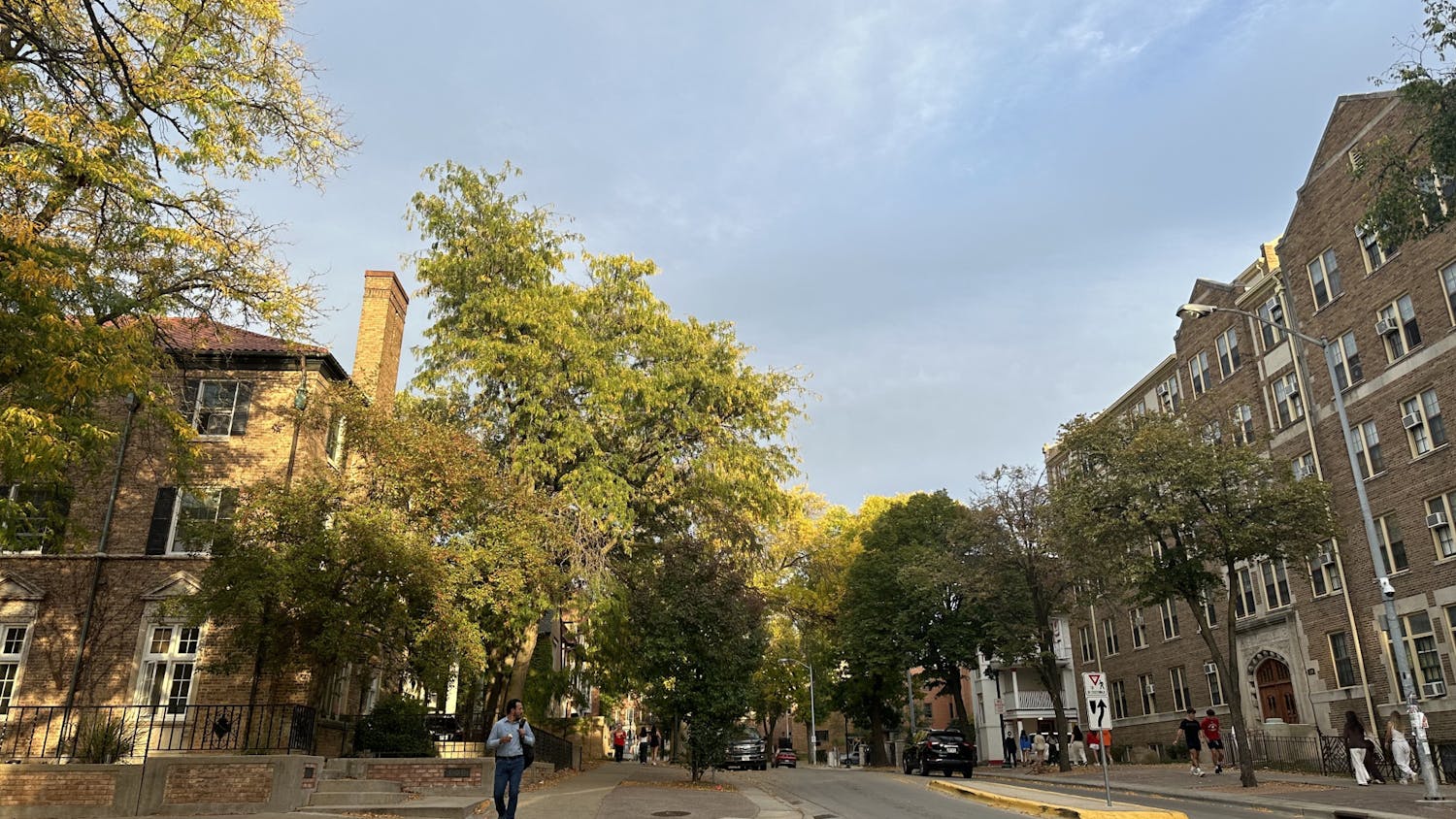A group of experts met online for an Election Symposium to discuss the results of a pre-election survey conducted by the Elections Research Center Dec. 4.
UW-Madison School of Journalism and Mass Communication (SJMC) Professor Michael Wagner focused specifically on a “pre-election” swing state and democratic agenda survey conducted by the Center for Communication and Civic Renewal (CCCR), an SJMC research group dedicated “to understand[ing] the communication ecology and political culture in Wisconsin over the last decade.”
The CCCR team comprises 16 researchers, half of whom are graduate students.
The pre-election survey questions were specifically tailored to the 2020 Swing State Vote and the Democrats’ Agenda in 2021. The Swing State Vote survey follows a 2019 “What makes Wisconsin swing?” analysis published through Vox Media, which examines media consumption and engagement in political discussions.
“One thing that we [the research team] always do in our surveys is we try to break down people’s media use by a variety of different topics,” Wagner said upon segueing into web-based survey data analysis.
According to Wagner, those surveyed “are folks who participate in web surveypanels and are selected based upon matching a variety of US Census characteristics.”
“We’re gonna look at Wisconsin, North Carolina, Pennsylvania and Michigan,” Wagner said at the symposium. Data sets from Georgia and Ohio were excluded due to “waiting issues,” and Wagner further explained how the team oversampled in Wisconsin with the intention of categorizing in-state results geographically.
According to survey results that correspond with questions on frequency of media use, as well as subsequent factor analyses, the study group was able to associate president-elect Joe Biden supporters with the consumption of mainstream television, national newspapers, liberal TV use and news satire use. Survey results also linked Donald Trump supporters with the consumption of conservative television, conservative talk radio and conservative online website use.
Abortion, the Black Lives Matter (BLM) movement and a mask mandate joined liberal TV use, liberal online use and news satire use as predictors of a vote for Biden. Belief in the QAnon conspiracy theory, anti-democratic sentiments, white ethnicity, conservative TV and radio use, as well as a slight social media use correlation, classify as predictors of a vote toward Trump.
Disparities in the values and beliefs of opposing parties has led to social unrest among Wisconsin voters.
“We found using Marquette Law School poll data in 2012 that about a third of Wisconsinites had said they’ve stopped talking politics with someone because of their views about contentious politics in our state,” Wagner said. “In 2018, we repeated that question and found that the answer had gone to 50 percent.”
In 2018, 25 percent of surveyed “Wisconsinites” expressed how they severed ties with a friend or family member due to controversy over political beliefs. This jumped three percentage points in 2020 to 28 percent of the Wisconsin residents surveyed.
“We also included a set of questions that were developed by a political scientist named Larry Bartels that looks at different kinds of attitudes about democracy,” Wagner added.
Democrats, republicans and independents assessed their support for the BLM movement and Green New Deal — both of which were framed using alternate terminology.
For example, participants were asked if they “support the goal of Black Lives Matter to [abolish, defund, reduce police budgets, or reform] the police.” Democrats distinguished between the terms “abolish” and “defund,” whereas republicans generally singled out “reform” as a goal unique to the alternatives. In this scenario, one’s geographic location was more determinant of support for the BLM movement than the role of framing was.
And, both Biden and Trump supporters in the state of Wisconsin expressed less trust in in-state journalists than Biden and Trump supporters across other swing states did.
Additionally, the CCCR study group identified a correlation between voting methods and political parties.
“Not quite half of our respondents had already voted when we talked to them online in October, and those who had voted by mail, which was the largest group, were strong Biden supporters,” Wagner explained. “The people who dropped things off at the ballot box or voted early in person were not very large groups, but they were also strongly for president-elect Biden.”
An “NA” answer option was made available for survey participants who had yet to vote in the 2020 election but intended on doing so. This group showed modest favoritism toward Trump.
When questioned about the level of trust they have in various government institutions, Biden supporters in Wisconsin expressed confidence in their local television news stations whereas Trump-supporting Wisconsinites held confidence in police departments.
Barry Burden — the founding director of the Elections Research Center, the group who hosted the Symposium — discussed these recently released results pertaining to the 2020 presidential election with Jonathan Ladd (Georgetown University), Michael Wagner (UW-Madison), Rachel Blum (University of Oklahoma), Chryl Laird (Bowdoin College) and Chris Tausanovitch (UCLA).
Currently, a post-election survey is being conducted by the CCCP study group as researchers aim to re-survey the same individuals surveyed before the 2020 election.
Jessica Sonkin is a former managing editor of The Daily Cardinal. She previously served as the news manager and campus editor. She is now a desk assistant at Fox News. Jess excels at her work and her leadership skills. Any future office would be lucky to have her as a co-worker or mentor.






